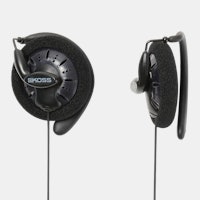Click to view our Accessibility Statement or contact us with accessibility-related questions






PRODUCTS YOU MAY LIKE
Trending Posts in Audiophile

robbertwilson
Shop Premium Women Golf Shirts at ApparelnBags
Be the trendsetter on the golf course with our stylish collection of custom polo shirts for women. Whether you're swinging your way to victory or simply want to rock that sporty chic look, our polo shirts for women are here to make you stand out. Moreover, we understand that style and quality go hand in hand. That's why, from golf shirts for women to long sleeve polo shirts for women , we handpick the best products to ensure you experience comfort and durability. Also, our women polo shirts offer the perfect blend of style and functionality, so you can focus on your game without compromising style. So, grab your favorite polos today. Remember, it's not just a game; it's a lifestyle, and our polos will help you ace both!
Apr 25, 2024

SsButerbal
Ringing in PC38X's
I recently got this headset, and wow is it good. My only issue is when certain people talk on discord, I can hear a really high pitched ringing. I fiddled with a bunch of settings, computer audio and discord, and nothing seems to solve the issue. It is primarily if not all in my right ear only. Is there something wrong with my headset, or was that ringing always there I can just hear it cause the headset is THAT good? I haven't had any issues with any other application, though I have yet to test if I can hear the ringing on a different version of discord, say on my xbox instead of my pc. Only other issue I've had is occasional static, but I can't tell if it's from the headset or the show/game/etc.
Apr 24, 2024
itsamepe
Sennheiser PC37X randomly goes bad after disconnecting the cable ?
Greetings, Yesterday I was using my headset like normal with my macbook, just listening to music and on a call with people like usual, and the headset was perfectly fine. The stock wire that came with the headset is extremely long and yesterday it annoyed me very much that it kept getting tangled with itself, so I decided to see if the cable is replaceable. I pulled out the cable from the headset and saw the adapter, and looked online for a replacement. Upon plugging it back in, the audio sounded extremely muffled and washed out. Im not sure what I did wrong to make it mess up like that as I've always taken good care of it, ive had it for about 2 years and its always just been chilling on my desk, but anywho I thought the cable just went bad and ordered a replacement. The replacement came, and the issue is still persistant, so I am not sure what the issue is I've tried multiple different headsets and the issue is not with the port, and I also tried it with my windows laptop and...
Apr 23, 2024

MrChiSox
Big changes coming to my tiny little music room, I've recently purchased a new stack. Currently figuring out where to locate it all and ordering up the necessary cables, it won't be too long before I'm up and running. I am now the proud owner of a brand new stack. It's a European brand called Earmen. Amp, DAC, Streamer & Linear Power Supply. It won't be long!
https://www.youtube.com/watch?v=MB15yM4UptQ
Apr 23, 2024

Briankan
Recommendation for my next headphone set? I have Koss 95x
Hey all, What would you recommend I get next and why? I have Koss ESP-95x electrostatic massdrop headphones. These are my first and only audiophile set. I love them. I think my only real requirements is $500 or less for the headphones and that they have a little more low end. I don’t need thump but these are really light on lows…but the experience is still awesome. Also any recommendations on an amp? I only have my electrostatic thingy. I am using the Topping D50 DAC. thx!!
Apr 22, 2024

Simthaniel
Rigs
Modded headphones with qudelix at the core
When I received the Qudelix 5K, I had already modified a pair of Superlux HD-681 headphones. I previously soldered my own balanced connections to the drivers, providing multiple ways to connect and...
Apr 14, 2024

brothamike
A decent set of IEMs
I am in the midst of a 300 hour burn-in but, I will say I am enjoying how this set sounds so far. Before I received these which was btw late by a few weeks, I purchased a Sony/Kimber Kable MMCX...
Apr 12, 2024












That being said, there were also comments about issues with containers at ports, I can say that my friends who manufacture things in China are having troubles getting their products in a timely manner.
The difference here is the difference between Detroits old QA process vs. how the Japanese improved on that by using Deming's methods. The Japanese would have every autoworker empowered to stop the assembly line if he saw a problem, so they wouldn't make a bunch of cars that had that problem. They'd fix the problem right then and there, and then restart the line. Meanwhile, GM would prohibit every autoworker from stopping the line because they wanted to produce a zillion cars per day... so, they'd make 5000 cars with the exact same problem, and then they'd have to go find them all and fix them after they were made..